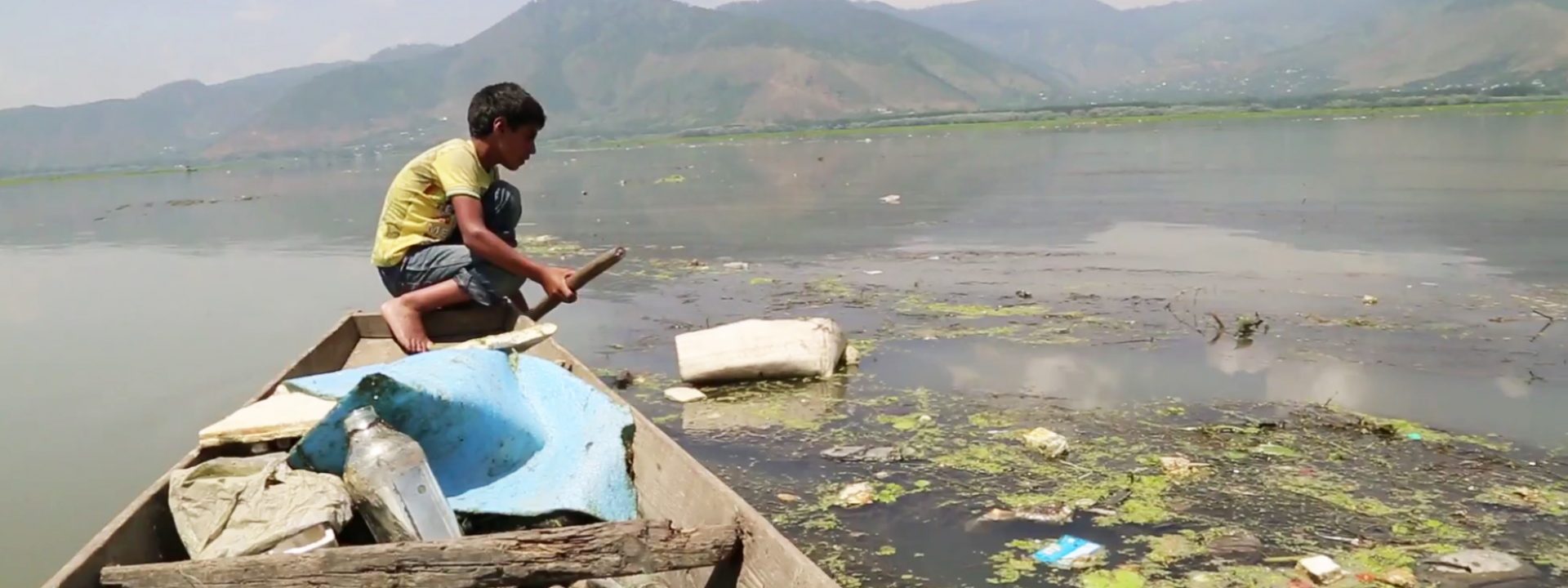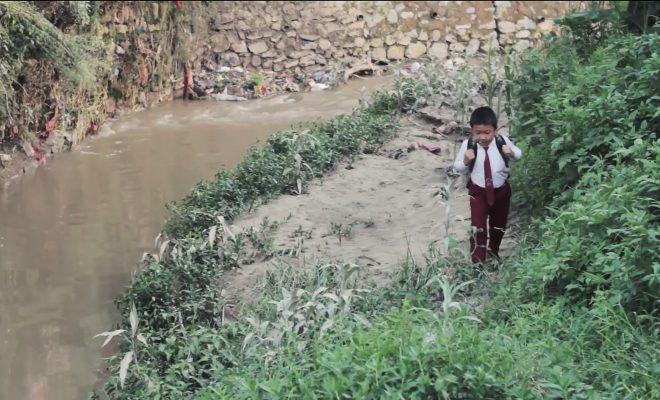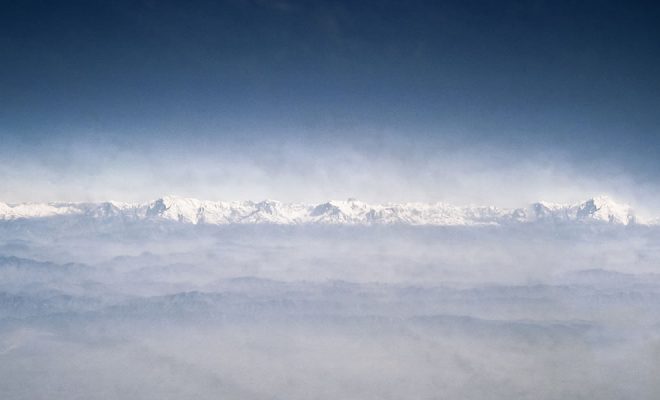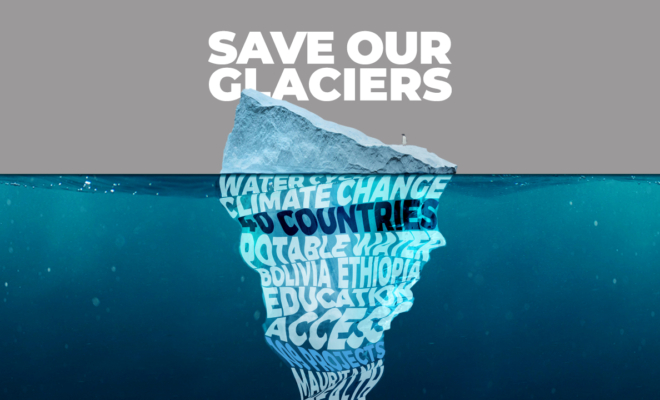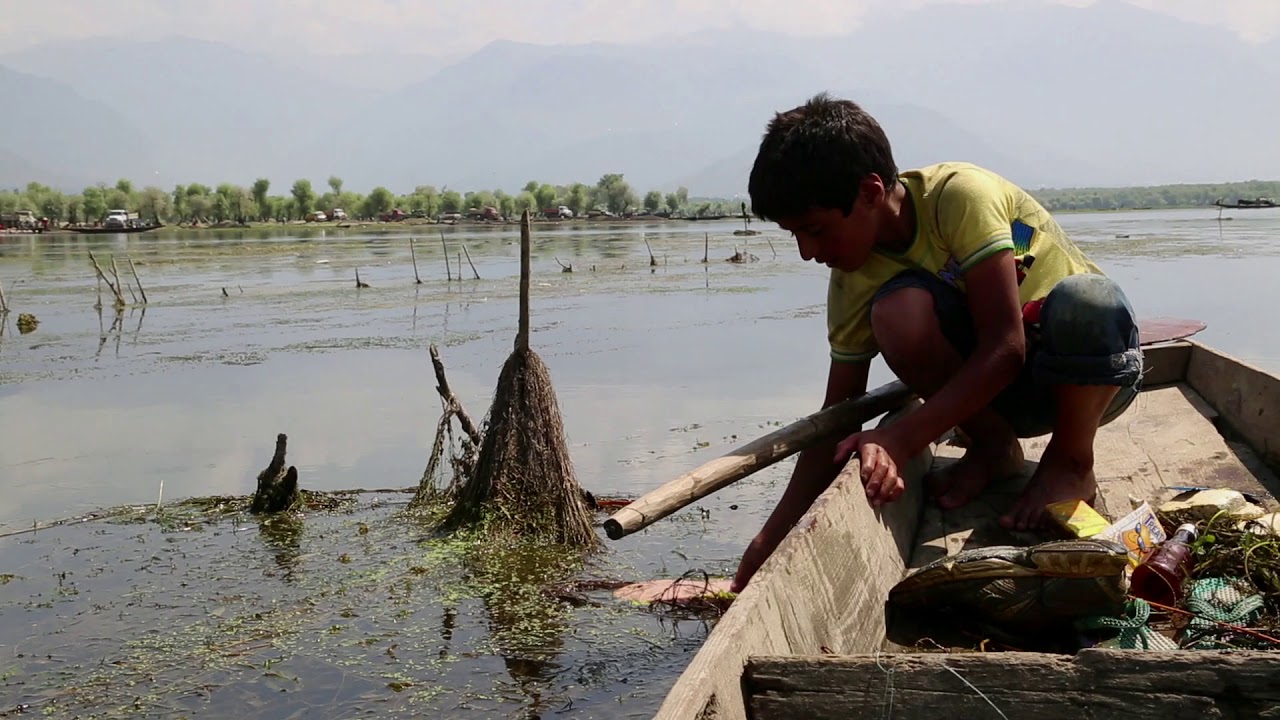
Billa is one of the more than 385 million children that live below the poverty line all around the world. His father passed away but he still has his mother and two sisters left and this prevents him from ending up like the more than 10 million abandoned children that swarm the streets of Indian cities. He and his family live precariously on the shores of Lake Wular in the district of Bandipora, in the Indian state of Jammu and Kashmir. Billa has another paradoxical ally: the pollution that covers the surface of the lake has become his support. The survival of his family depends on the sale of plastic waste he collects every day in the boat inherited from his father, which he has learnt to handle very skillfully. He has had to drop out of school, because he has to work from dusk to dawn for the volume of collected waste to be profitable.
Fishing in the lake is a fundamental part of the diet of over 100,000 people that live on its banks. Over eight thousand fishermen earn their living around the lake, as Billa’s father did, and cooperative societies based on the commercialization of fish employ hundreds of dwellers. The wetlands of the lake also provide agricultural work: many other families harvest water chestnuts and plants for fodder.
Lake Wular has a tectonic origin; its size changes every season from 30 to 260 km2, it is the largest freshwater reserve in India and a key element in the water security of the region: it is the regulator of the flow of melting glaciers in the Himalayas, and in particular of the Indus river that flows towards Pakistan.
Billa finds a double meaning in his hard work: he feeds his family while at the same time contributes to cleaning the lake, whose deterioration and negative impact on the hydrological balance of the region have been alerted for decades by environmental experts. Even though the lake was qualified as Wetland of National Importance in the year 1986 within the framework of the Program of Wetlands of the Ministry of the Environment and Forests of the Government of India, very little has been done until now to prevent its deterioration.
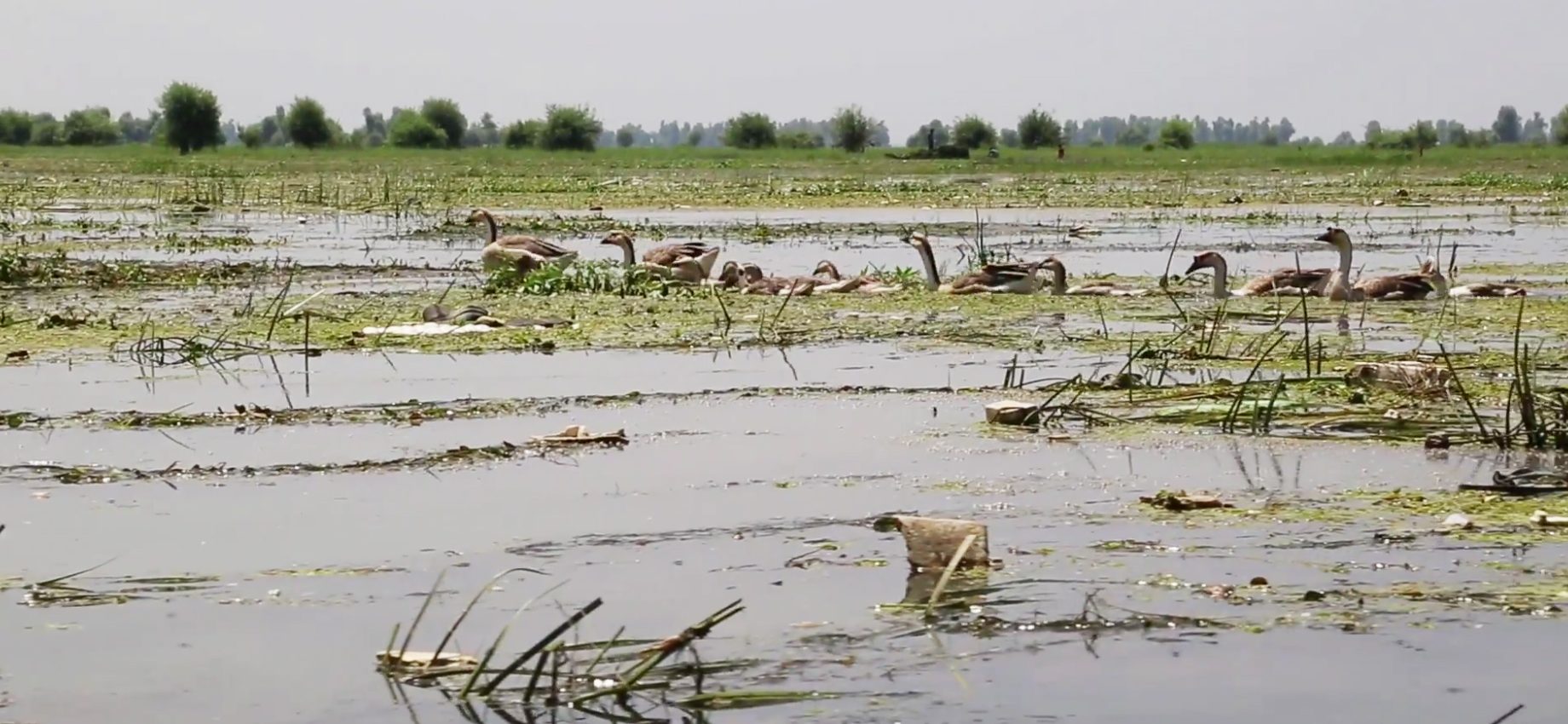
The pollution of Lake Wular comes mostly from the Jhelum River, which dumps in it the debris of the cities upstream, most of which lack sanitation and waste recycling. A level of pollution that, according to Jalal Jeelani, the author of the short film, has not stopped growing in parallel with the development of new consumption habits of the inhabitants of the basin.
The film had recognition from the highest office in the country when Prime Minister Shri Narendra Modi talked about Billa’s Wular Lake film in his Mann Ki Baat (Radio address).
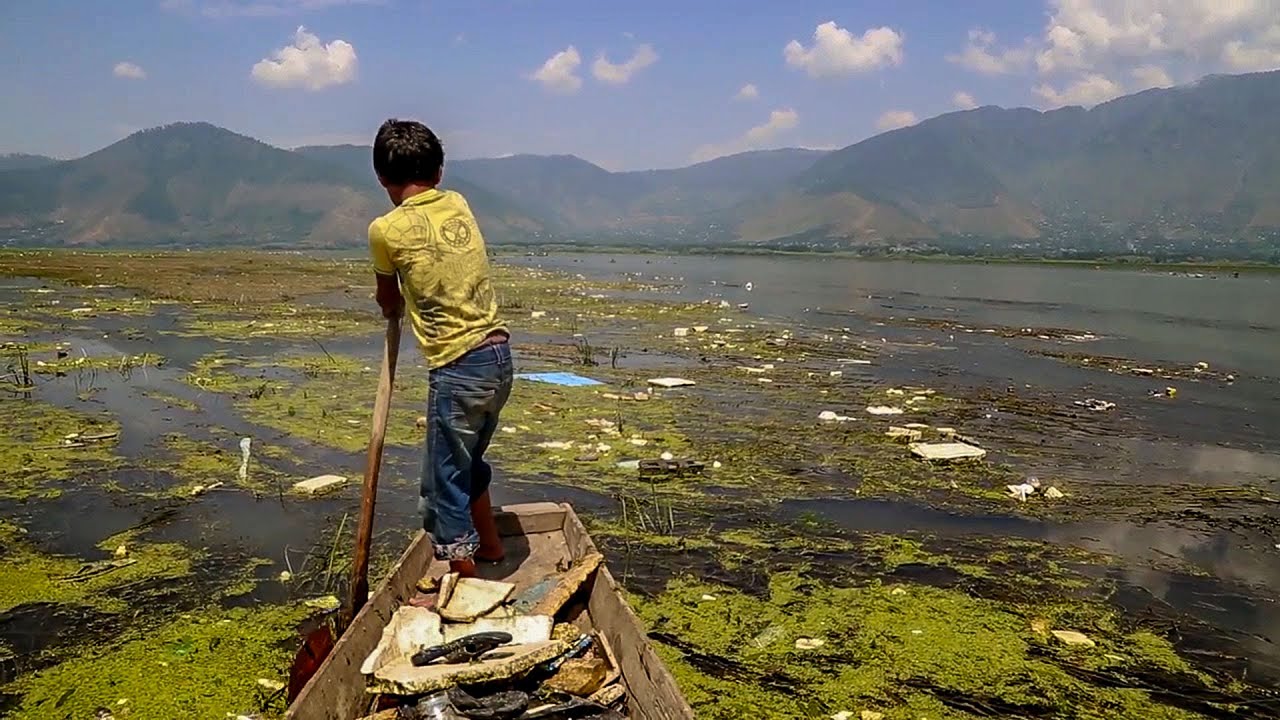
Interview with Jalal Ud Din Baba – Finalist with “Saving the Saviour”
But not only pollution menaces the lake. The invasion of the wetlands due to poor agricultural management and the uncontrolled proliferation of willows have halved its surface in the last century, reducing by one fifth its water storage capacity. Climate change is aggravating extreme situations (droughts and floods), which have increased as the water regulation capacity of the wetland decreased, affecting both local communities and the millions of people living in the valley of Kashmir downstream.
In order to save the lake and avoid a socioeconomic catastrophe, the government of Jammu and Kashmir (India) is currently applying an integrated management plan conceived by Wetlands International South Asia. One of the main actions that are being carried out is the elimination of most of the willows (two million trees) that have been planted in the wetlands since the 1950s to obtain wood to manufacture cricket bats, fish boxes or firewood. Willows increase the accumulation of sediment, which is another problem being addressed by the program, which plans to dredge large areas to reconnect the marshes.
Experts warn that these measures will not be effective without parallel progress in the development of sanitation, which is inexistent in most dwellings on the banks of the lake, which together to the access to water is the base for the sustainable development of the large community that depends on the lake. Only in this way will the environmental survival of the large water body be beneficial to Kashmir, and dissolve the perverse symbiosis children like Billa live with in polluted environments: being able to return to school and stop depending on the collection of waste.


